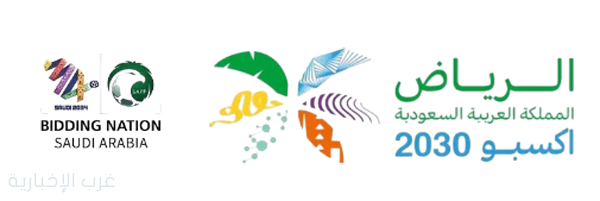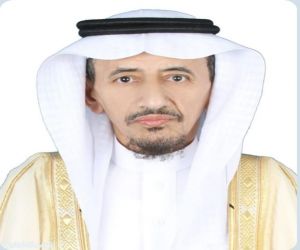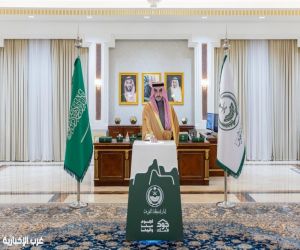Submitted to: United Nations Framework Convention on Climate Change (UNFCCC)
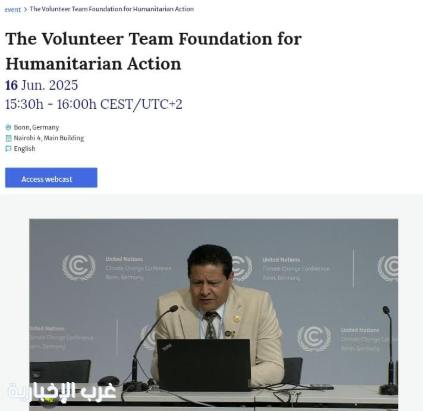

المصدر -
Executive Summary
The Volunteer Team Foundation for Humanitarian Action, as an accredited Observer Organization
to the UNFCCC, proudly submits this contribution to the Call for Inputs launched by the Climate
High-Level Champions. This paper highlights our perspectives, experiences, and
recommendations in advancing global climate action. Our foundation operates at the intersection
of humanitarian action, climate awareness, and sustainable development, with a focus on
empowering vulnerable communities, youth, and civil society actors.
We recognize that climate change is not only an environmental crisis but also a humanitarian
challenge. Therefore, our approach integrates social justice, inclusiveness, and sustainable
resilience. Our initiatives are directly aligned with the United Nations Sustainable Development
Goals (SDGs), with special emphasis on SDG 13 (Climate Action), SDG 6 (Clean Water and
Sanitation), and SDG 7 (Affordable and Clean Energy).
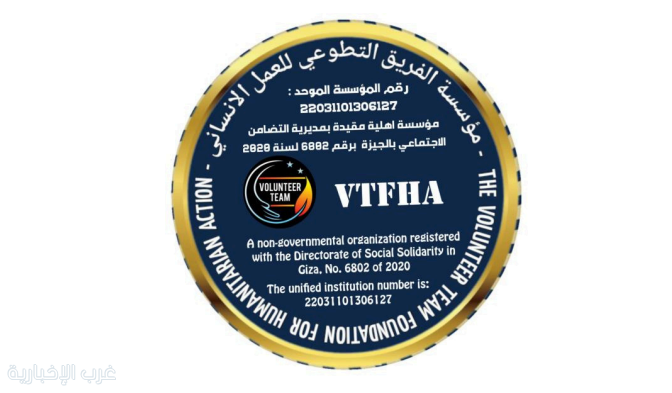
Through active participation in international partnerships, including the Climate Ambassadors
Initiative, the Auditors and Experts Initiative in Sustainability and Climate Risk Assessment, the
Water Footprint Pioneers, and the Carbon Neutral Pioneers, we have developed innovative
approaches to address climate risks, advance education, and promote carbon neutrality. These
partnerships serve as practical examples of how grassroots organizations can influence systemic
change at national, regional, and international levels.
Our contribution addresses the guiding questions of the Climate Champions by sharing insights on
enabling environments, capacity building, finance, resilience, and inclusivity. We also highlight
lessons learned from our projects, particularly in building networks of climate ambassadors,
strengthening professional expertise in sustainability, and pioneering new models for water and
carbon management.
This submission concludes with a set of recommendations aimed at enhancing global
collaboration, just transitions, and accelerating pathways toward net-zero by 2050.
Section I – Introduction
The Volunteer Team Foundation for Humanitarian Action (VTFHA) is a civil society organization
committed to addressing the interconnected challenges of humanitarian needs, sustainable
development, and climate change. Established to empower communities and provide innovative
responses to crises, the foundation has expanded its mission to include climate action as a central
pillar of its work.
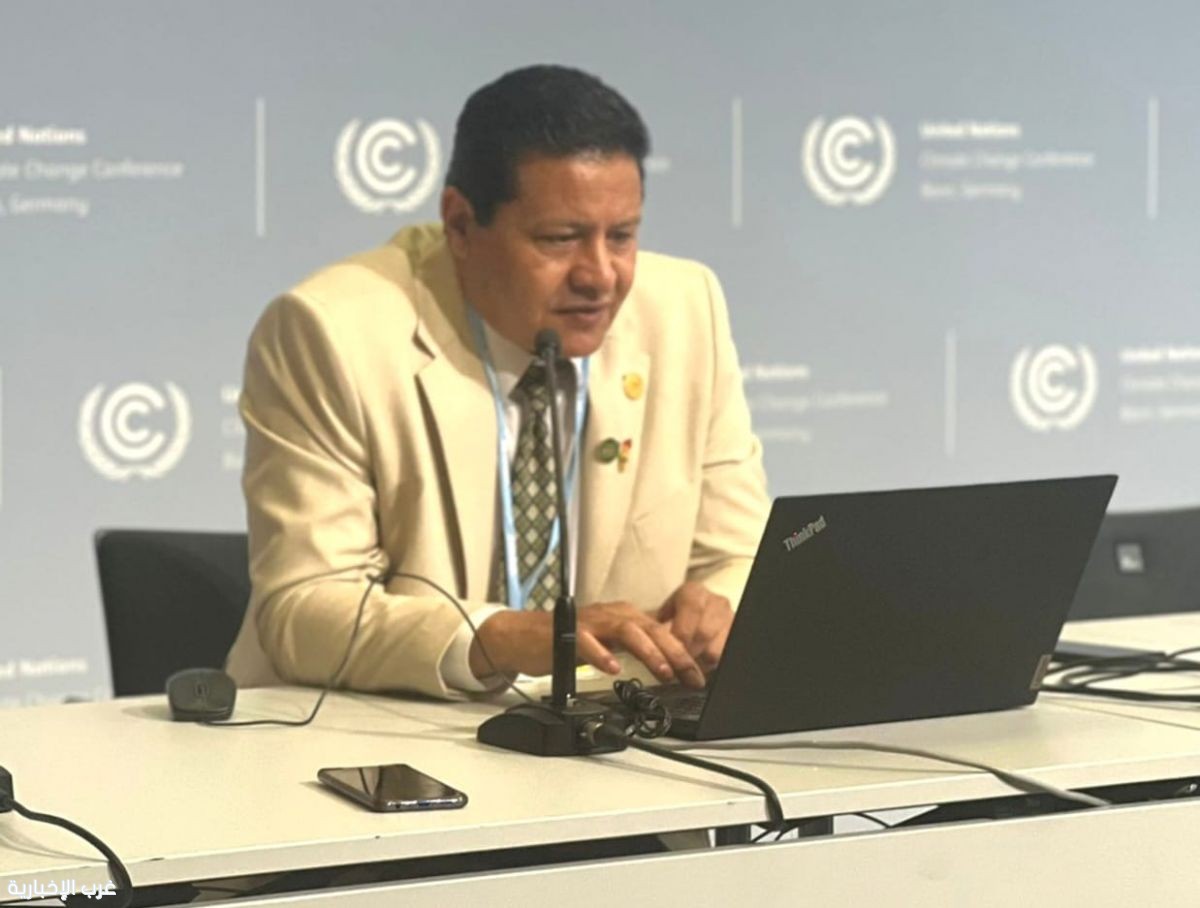
Our role as an Observer in the UNFCCC process reflects our commitment to contributing
constructively to global dialogue. We understand that tackling climate change requires inclusive
governance, where civil society, academia, private sector, and governments all play an integral
role. By engaging in the UNFCCC process, VTFHA aims to amplify voices from the Global South,
ensuring that perspectives from vulnerable communities are not marginalized.
The foundation is led by Dr. Mostafa Elsayed Sherbiny Elsayed, an internationally recognized
expert in sustainability, carbon management, and climate policy. Under his leadership, VTFHA
has become a hub for innovative projects that align humanitarian response with climate resilience.
We prioritize capacity building, public awareness, and knowledge-sharing, making us a bridge
between local action and global policy frameworks.
Our work is framed within the Sustainable Development Goals (SDGs), with a cross-cutting
approach that links humanitarian action with climate mitigation, adaptation, and resilience. For
example, addressing water scarcity not only reduces climate vulnerability but also supports health,
agriculture, and economic stability. Similarly, advancing carbon neutrality contributes to
environmental protection while creating green jobs and supporting just transitions.
This introduction sets the stage for our contribution, which responds to the guiding questions of
the Climate Champions. We share practical insights, highlight best practices from our projects,
and propose recommendations for strengthening the Global Climate Action Agenda.
Section II – Response to Guiding Questions
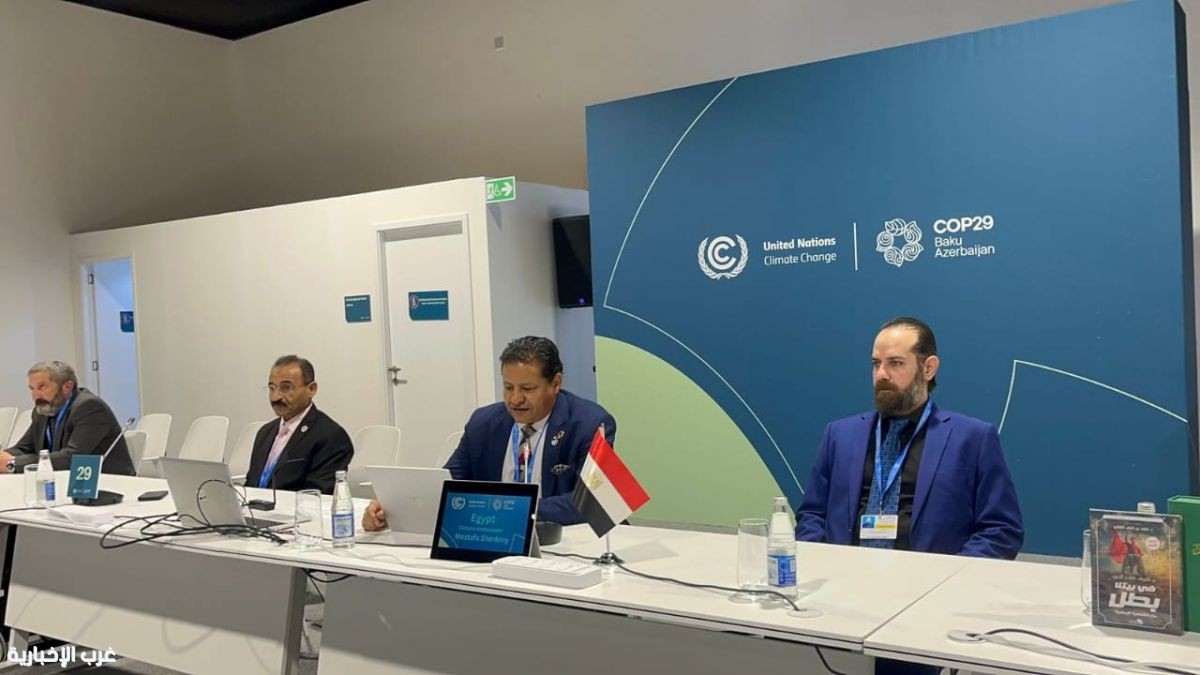
Q1: What are the most important enablers of climate action at the non-Party stakeholder
level?
• Enablers include: policy alignment, accessible finance, strong partnerships, and inclusive
governance.
• Example: Our Climate Ambassadors Initiative shows how youth-led networks can
mobilize large-scale awareness campaigns, influencing national climate discourse.
• Lesson: Empowering communities requires both institutional support and grassroots
mobilization.
Q2: How can capacity building best support climate ambition and implementation?
• Professional capacity is critical: auditors, experts, and practitioners need advanced skills
in sustainability reporting, risk assessment, and ESG disclosure.
• Example: Our Auditors and Experts Initiative has trained thousands of professionals in
Egypt and across the Arab region on climate risk assessment aligned with IFRS S1, S2,
and TNFD.
• Recommendation: Capacity building should integrate both technical knowledge and soft
skills (leadership, communication, community engagement).
Q3: How can financial flows be better directed towards climate solutions?
• Challenge: Civil society organizations face barriers in accessing climate finance.
• Proposal: Establish simplified, transparent mechanisms for grassroots organizations to
access micro-grants and blended finance.
• VTFHA contribution: Through partnerships, we demonstrate accountability frameworks
that ensure effective use of climate finance, increasing donor confidence.
Q4: What role does inclusivity play in scaling climate action?
• Inclusivity ensures legitimacy and sustainability. Marginalized groups (youth, women,
indigenous peoples, rural communities) bring local knowledge critical for adaptation
strategies.
• Example: The Climate Ambassadors program has empowered young volunteers in Egypt
and Sudan to lead awareness campaigns, influencing both communities and
policymakers.
• Recommendation: Every climate program should integrate inclusivity as a core principle,
not an afterthought.
Q5: What innovations or tools can accelerate climate action?
• Tools: digital platforms for carbon accounting, AI-driven water footprint mapping, and
blockchain for climate finance transp
Tools: digital platforms for carbon accounting, AI-driven water footprint mapping, and
blockchain for climate finance transparency.
• Innovation: The Water Footprint Pioneers initiative introduces new methods for tracking
and reducing water use in agriculture and industry.
• Example: In Egypt, water footprint mapping has been used to raise awareness among
farmers about sustainable irrigation practices.
Q6: How can we ensure accountability and transparency in climate commitments?
• Mechanism: independent verification and reporting aligned with global standards (GHG
Protocol, ISO 14064, IFRS S1/S2).
• VTFHA Role: As part of the Auditors and Experts Initiative, we train professionals to
implement rigorous verification processes.
• Recommendation: Encourage governments and private sector to adopt third-party
verification to ensure credibility of their net-zero pledges.
Section III – Contributions to the Global Climate Action Agenda
VTFHA’s contributions can be grouped into four thematic areas:
1. Climate Education and Awareness – Through the Climate Ambassadors initiative, we
have mobilized thousands of young volunteers to engage communities in climate literacy,
sustainable lifestyles, and behavioral change.
2. Capacity Building for Professionals – The Auditors and Experts Initiative provides
specialized training on climate risk assessment, ESG reporting, and sustainability
auditing. This builds a professional ecosystem capable of supporting ambitious climate
policies.
3. Water Sustainability – The Water Footprint Pioneers program addresses one of the most
pressing challenges in the MENA region: water scarcity. By promoting efficient use and
management, we help build resilience to climate-induced water stress.
4. Carbon Neutral Pathways – The Carbon Neutral Pioneers initiative provides
frameworks for organizations to measure, reduce, and offset emissions, supporting global
net-zero targets.
Through these contributions, VTFHA bridges local action with global ambition. By integrating
humanitarian values with scientific approaches, we demonstrate how civil society can be a
catalyst for systemic transformation.
Section IV – Recommendations & Proposed Actions
1. Establish a dedicated funding window under the UNFCCC for grassroots civil society
climate projects.
2. Strengthen collaboration between High-Level Champions and Observer Organizations to
ensure bottom-up perspectives inform global strategies.
3. Promote standardization of climate reporting for non-Party stakeholders to increase
transparency.
4. Integrate inclusivity and equity into all climate initiatives, ensuring just transitions that
leave no one behind.
5. Accelerate knowledge-sharing platforms to scale best practices across regions.
The Volunteer Team Foundation for Humanitarian Action reaffirms its commitment to
advancing the Global Climate Action Agenda. By combining humanitarian principles with
sustainability expertise, we contribute to building resilient communities and supporting the
achievement of the Paris Agreement goals. Our partnerships, initiatives, and recommendations
underscore the importance of inclusive, transparent, and ambitious climate action. We stand
ready to continue our engagement with the UNFCCC, the Climate High-Level Champions, and
global stakeholders in shaping a sustainable, carbon-neutral future.
Annex – Examples of UN SDG Partnerships
1. Climate Ambassadors Initiative – Promoting climate literacy and engagement through
youth networks | https://sdgs.un.org/partnership-progress/climate-ambassadors
2. Auditors and Experts Initiative in Sustainability and Climate Risk Assessment –
Building professional capacity for ESG and climate risk reporting. |
https://sdgs.un.org/partnerships/auditors-and-experts-initiative-sustainability-and-climaterisk-assessment
3. Water Footprint Pioneers – Driving sustainable water use and raising awareness of
water footprints.| https://sdgs.un.org/partnerships/water-footprint-pioneers-initiativewater-ambassadors
4. Carbon Neutral Pioneers – Guiding organizations on pathways toward carbon
neutrality. | https://sdgs.un.org/partnerships/ca
The Volunteer Team Foundation for Humanitarian Action, as an accredited Observer Organization
to the UNFCCC, proudly submits this contribution to the Call for Inputs launched by the Climate
High-Level Champions. This paper highlights our perspectives, experiences, and
recommendations in advancing global climate action. Our foundation operates at the intersection
of humanitarian action, climate awareness, and sustainable development, with a focus on
empowering vulnerable communities, youth, and civil society actors.
We recognize that climate change is not only an environmental crisis but also a humanitarian
challenge. Therefore, our approach integrates social justice, inclusiveness, and sustainable
resilience. Our initiatives are directly aligned with the United Nations Sustainable Development
Goals (SDGs), with special emphasis on SDG 13 (Climate Action), SDG 6 (Clean Water and
Sanitation), and SDG 7 (Affordable and Clean Energy).

Through active participation in international partnerships, including the Climate Ambassadors
Initiative, the Auditors and Experts Initiative in Sustainability and Climate Risk Assessment, the
Water Footprint Pioneers, and the Carbon Neutral Pioneers, we have developed innovative
approaches to address climate risks, advance education, and promote carbon neutrality. These
partnerships serve as practical examples of how grassroots organizations can influence systemic
change at national, regional, and international levels.
Our contribution addresses the guiding questions of the Climate Champions by sharing insights on
enabling environments, capacity building, finance, resilience, and inclusivity. We also highlight
lessons learned from our projects, particularly in building networks of climate ambassadors,
strengthening professional expertise in sustainability, and pioneering new models for water and
carbon management.
This submission concludes with a set of recommendations aimed at enhancing global
collaboration, just transitions, and accelerating pathways toward net-zero by 2050.
Section I – Introduction
The Volunteer Team Foundation for Humanitarian Action (VTFHA) is a civil society organization
committed to addressing the interconnected challenges of humanitarian needs, sustainable
development, and climate change. Established to empower communities and provide innovative
responses to crises, the foundation has expanded its mission to include climate action as a central
pillar of its work.

Our role as an Observer in the UNFCCC process reflects our commitment to contributing
constructively to global dialogue. We understand that tackling climate change requires inclusive
governance, where civil society, academia, private sector, and governments all play an integral
role. By engaging in the UNFCCC process, VTFHA aims to amplify voices from the Global South,
ensuring that perspectives from vulnerable communities are not marginalized.
The foundation is led by Dr. Mostafa Elsayed Sherbiny Elsayed, an internationally recognized
expert in sustainability, carbon management, and climate policy. Under his leadership, VTFHA
has become a hub for innovative projects that align humanitarian response with climate resilience.
We prioritize capacity building, public awareness, and knowledge-sharing, making us a bridge
between local action and global policy frameworks.
Our work is framed within the Sustainable Development Goals (SDGs), with a cross-cutting
approach that links humanitarian action with climate mitigation, adaptation, and resilience. For
example, addressing water scarcity not only reduces climate vulnerability but also supports health,
agriculture, and economic stability. Similarly, advancing carbon neutrality contributes to
environmental protection while creating green jobs and supporting just transitions.
This introduction sets the stage for our contribution, which responds to the guiding questions of
the Climate Champions. We share practical insights, highlight best practices from our projects,
and propose recommendations for strengthening the Global Climate Action Agenda.
Section II – Response to Guiding Questions

Q1: What are the most important enablers of climate action at the non-Party stakeholder
level?
• Enablers include: policy alignment, accessible finance, strong partnerships, and inclusive
governance.
• Example: Our Climate Ambassadors Initiative shows how youth-led networks can
mobilize large-scale awareness campaigns, influencing national climate discourse.
• Lesson: Empowering communities requires both institutional support and grassroots
mobilization.
Q2: How can capacity building best support climate ambition and implementation?
• Professional capacity is critical: auditors, experts, and practitioners need advanced skills
in sustainability reporting, risk assessment, and ESG disclosure.
• Example: Our Auditors and Experts Initiative has trained thousands of professionals in
Egypt and across the Arab region on climate risk assessment aligned with IFRS S1, S2,
and TNFD.
• Recommendation: Capacity building should integrate both technical knowledge and soft
skills (leadership, communication, community engagement).
Q3: How can financial flows be better directed towards climate solutions?
• Challenge: Civil society organizations face barriers in accessing climate finance.
• Proposal: Establish simplified, transparent mechanisms for grassroots organizations to
access micro-grants and blended finance.
• VTFHA contribution: Through partnerships, we demonstrate accountability frameworks
that ensure effective use of climate finance, increasing donor confidence.
Q4: What role does inclusivity play in scaling climate action?
• Inclusivity ensures legitimacy and sustainability. Marginalized groups (youth, women,
indigenous peoples, rural communities) bring local knowledge critical for adaptation
strategies.
• Example: The Climate Ambassadors program has empowered young volunteers in Egypt
and Sudan to lead awareness campaigns, influencing both communities and
policymakers.
• Recommendation: Every climate program should integrate inclusivity as a core principle,
not an afterthought.
Q5: What innovations or tools can accelerate climate action?
• Tools: digital platforms for carbon accounting, AI-driven water footprint mapping, and
blockchain for climate finance transp
Tools: digital platforms for carbon accounting, AI-driven water footprint mapping, and
blockchain for climate finance transparency.
• Innovation: The Water Footprint Pioneers initiative introduces new methods for tracking
and reducing water use in agriculture and industry.
• Example: In Egypt, water footprint mapping has been used to raise awareness among
farmers about sustainable irrigation practices.
Q6: How can we ensure accountability and transparency in climate commitments?
• Mechanism: independent verification and reporting aligned with global standards (GHG
Protocol, ISO 14064, IFRS S1/S2).
• VTFHA Role: As part of the Auditors and Experts Initiative, we train professionals to
implement rigorous verification processes.
• Recommendation: Encourage governments and private sector to adopt third-party
verification to ensure credibility of their net-zero pledges.
Section III – Contributions to the Global Climate Action Agenda
VTFHA’s contributions can be grouped into four thematic areas:
1. Climate Education and Awareness – Through the Climate Ambassadors initiative, we
have mobilized thousands of young volunteers to engage communities in climate literacy,
sustainable lifestyles, and behavioral change.
2. Capacity Building for Professionals – The Auditors and Experts Initiative provides
specialized training on climate risk assessment, ESG reporting, and sustainability
auditing. This builds a professional ecosystem capable of supporting ambitious climate
policies.
3. Water Sustainability – The Water Footprint Pioneers program addresses one of the most
pressing challenges in the MENA region: water scarcity. By promoting efficient use and
management, we help build resilience to climate-induced water stress.
4. Carbon Neutral Pathways – The Carbon Neutral Pioneers initiative provides
frameworks for organizations to measure, reduce, and offset emissions, supporting global
net-zero targets.
Through these contributions, VTFHA bridges local action with global ambition. By integrating
humanitarian values with scientific approaches, we demonstrate how civil society can be a
catalyst for systemic transformation.
Section IV – Recommendations & Proposed Actions
1. Establish a dedicated funding window under the UNFCCC for grassroots civil society
climate projects.
2. Strengthen collaboration between High-Level Champions and Observer Organizations to
ensure bottom-up perspectives inform global strategies.
3. Promote standardization of climate reporting for non-Party stakeholders to increase
transparency.
4. Integrate inclusivity and equity into all climate initiatives, ensuring just transitions that
leave no one behind.
5. Accelerate knowledge-sharing platforms to scale best practices across regions.
The Volunteer Team Foundation for Humanitarian Action reaffirms its commitment to
advancing the Global Climate Action Agenda. By combining humanitarian principles with
sustainability expertise, we contribute to building resilient communities and supporting the
achievement of the Paris Agreement goals. Our partnerships, initiatives, and recommendations
underscore the importance of inclusive, transparent, and ambitious climate action. We stand
ready to continue our engagement with the UNFCCC, the Climate High-Level Champions, and
global stakeholders in shaping a sustainable, carbon-neutral future.
Annex – Examples of UN SDG Partnerships
1. Climate Ambassadors Initiative – Promoting climate literacy and engagement through
youth networks | https://sdgs.un.org/partnership-progress/climate-ambassadors
2. Auditors and Experts Initiative in Sustainability and Climate Risk Assessment –
Building professional capacity for ESG and climate risk reporting. |
https://sdgs.un.org/partnerships/auditors-and-experts-initiative-sustainability-and-climaterisk-assessment
3. Water Footprint Pioneers – Driving sustainable water use and raising awareness of
water footprints.| https://sdgs.un.org/partnerships/water-footprint-pioneers-initiativewater-ambassadors
4. Carbon Neutral Pioneers – Guiding organizations on pathways toward carbon
neutrality. | https://sdgs.un.org/partnerships/ca


